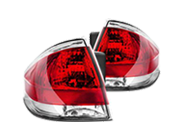
Trailer Hitch Wiring: Connecting Safety and Convenience
Trailer hitch wiring, often referred to as trailer wiring harnesses or towing electrics, is an essential component for safe and convenient towing. This crucial system allows your vehicle to communicate with the trailer, ensuring proper lighting and signaling, which is vital for road safety. In this guide, we'll explore trailer hitch wiring, its types, benefits, and how to choose the right wiring solution to ensure a seamless towing experience.
Types of Trailer Hitch Wiring:
Flat 4-Wire Connector: The Flat 4-wire connector is the most common type of trailer hitch wiring. It provides basic lighting functions: left turn, right turn, brake lights, and taillights. It's typically used for smaller trailers, such as utility trailers or small campers.
5-Wire Connector: The 5-wire connector includes the functions of the Flat 4-wire system plus a fifth wire for backup lights. It's commonly used for trailers that require backup lights, like larger RVs or enclosed cargo trailers.
6-Wire Connector: The 6-wire connector adds an additional wire for auxiliary power, which can be used to charge the trailer's battery or power accessories within the trailer, such as interior lights or hydraulic brakes.
7-Wire Connector (RV Style): The 7-wire connector, also known as the RV-style connector, provides a more comprehensive set of functions. It includes all the features of the 6-wire system and an additional wire for a 12-volt auxiliary power supply. It's often used for towing larger, multi-purpose trailers and RVs.
Benefits of Trailer Hitch Wiring:
Safety: Proper trailer hitch wiring ensures that other drivers can see your vehicle's turn signals, brake lights, and taillights, reducing the risk of accidents and ensuring safe towing.
Legality: In many places, towing a trailer without functioning lights is illegal. Trailer hitch wiring helps you comply with road safety regulations.
Convenience: Trailer wiring allows you to control the trailer's lights from your vehicle, eliminating the need for a second driver to signal turns or apply brakes manually.
Versatility: Different connector types accommodate various trailers and their lighting needs, making trailer hitch wiring a versatile solution for different towing scenarios.
Choosing the Right Trailer Hitch Wiring:
Connector Type: Select the connector type that matches the requirements of the trailers you plan to tow. Consider whether you need a 4, 5, 6, or 7-wire connector based on the trailer's lighting and accessory needs.
Vehicle Compatibility: Ensure that the trailer hitch wiring system you choose is compatible with your vehicle's make, model, and year. Some vehicles may require vehicle-specific wiring harnesses.
Installation: Depending on your level of expertise, you can opt for vehicle-specific harnesses that are plug-and-play or universal wiring kits that may require more complex installation. Professional installation is an option for those less comfortable with DIY work.
Weather Resistance: Look for trailer hitch wiring systems that are designed to withstand exposure to the elements, as they will be exposed to rain, snow, and road debris.
Testing and Maintenance: After installation, thoroughly test the trailer hitch wiring to ensure all lights and signals are functioning correctly. Regularly inspect and maintain the wiring for any damage or wear, as this can affect its performance.
Conclusion:
Trailer hitch wiring is a vital component of safe and legal towing, ensuring proper lighting and signaling for your trailer. By understanding the types of trailer hitch wiring, their benefits, and the factors to consider when choosing one, you can ensure a seamless and safe towing experience. Whether you're towing a small utility trailer or a large RV, investing in the right trailer hitch wiring harness is essential for both road safety and peace of mind during your travels.




























